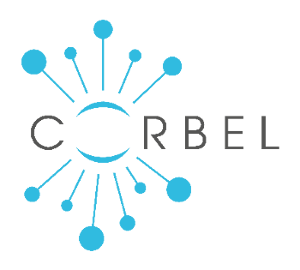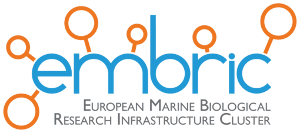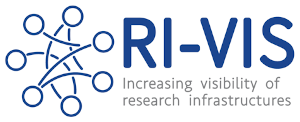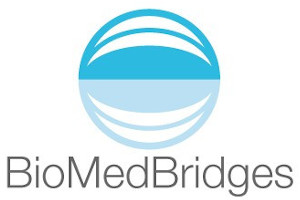The Life Science Research Infrastructure community have led several domain shaping projects. You can explore these below.

September 2015 – May 2020
The social and economic challenges of ageing populations and chronic disease can only be met by the translation of biomedical discoveries to new, innovative and cost-effective treatments. The ESFRI Life Science Research Infrastructures (LS RI) underpinned every step in this process.
Through a user-led approach, CORBEL developed tools, services and data management required by cutting-edge European research projects to establish a sustained foundation of collaborative scientific services for biomedical research in Europe and embed the combined infrastructure capabilities into the scientific workflow of advanced users.
More about CORBEL

March 2019 – August 2023
EOSC-Life brought together 13 Biological and Medical ESFRI research infrastructures to create an open, digital and collaborative space for biological and medical research. The project published ‘FAIR’ data and a catalogue of services provided by participating RIs for the management, storage and reuse of data in the European Open Science Cloud (EOSC).
More about EOSC Life

January 2019 – Present (ERIC Forum 2 continuation)
The community legal framework for a European Research Infrastructure Consortium (ERIC) is a specific legal form to facilitate the establishment and operation of research infrastructures with European interest. It provides a legal capacity recognised in all EU Member States, a faster process than creating an international organisation, and exemptions from VAT and excise duty.
Aware of the constant enlargement of the community, the existing ERICs formed the ERIC Forum in 2017 to further strengthen the coordination among ERICs and interact effectively with the EC to achieve the full implementation of the ERIC regulation. The ERIC Forum’s aim is to advance operations of ERICs and to strategically contribute to the development of ERIC related policies.
More about ERIC Forum

September 2015 – Present (RItrainPlus continuation)
RItrain, the Research Infrastructure Training Programme, is an EU-funded Horizon 2020 project aimed at improving and professionalising the training of managerial and leadership staff in research infrastructures (RIs). This is vital for the future success of Europe because access to excellent RIs underpins today’s research and innovation.
The tailored training comprises an executive masters in management of RIs, a series of webinars with experienced leaders in RIs, and staff exchanges to access managerial and leadership expertise directly from leading Ris.
More about RItrain

June 2015 – May 2019
The European Marine Biological Research Infrastructure Cluster (EMBRIC) was designed to accelerate the pace of scientific discovery and innovation from marine bio-resources. EMBRIC aimed to promote new applications derived from marine organisms in fields such as drug discovery, novel foods and food ingredients, aquaculture selective breeding, bioremediation, cosmetics and bioenergy.
In general, EMBRIC’s goal was to provide a long-term integrated cluster approach to promote the Blue Bio-Economy.
More about EMBRIC

February 2019 – January 2022
RI-VIS was a Horizon 2020 project working to increase the visibility of European research infrastructures (RIs) to new communities in Europe and beyond. The consortium included 13 partners from 12 RIs working in the fields of biomedical sciences, social sciences and environmental sciences, and expert advisors from the physics sector and from e-infrastructure.
The objectives of RI-VIS were to map RI services to new target communities and identify routes to maximise the exchange of information and bases for new partnerships, create an outreach programme to provide information, bring RIs together with new target communities, and create a collection of tools that are freely available to all RIs that have demonstrated efficacy and impact in facilitating new cooperative relationships.
More about RI-VIS

January 2012 – December 2015
BioMedBridges was a joint effort of 12 biomedical sciences research infrastructures on the ESFRI roadmap. Together, the project partners developed the shared e-infrastructure – the technical bridges – to allow data integration in the biological, medical, translational and clinical domains and thus strengthen biomedical resources in Europe. The project successfully concluded in December 2015, delivering the basis and impetus for its follow-on sister project, CORBEL.
More about BioMedBridges

2019 – Present
The science clusters have grown out of five collaborative projects funded by the European Union in 2019 to link ESFRI and other world-class Research Infrastructures (RIs) to the European Open Science Cloud (EOSC).
The services developed by the clusters and other outcomes of the projects are cornerstones of the emerging EOSC fabric and support both disciplinary communities and multidisciplinary initiatives with harmonised models for access to data, tools, workflows and training. Each cluster unites multiple RIs in their specific scientific domain.
More about Science-Clusters.eu

September 2015 – May 2020
The social and economic challenges of ageing populations and chronic disease can only be met by the translation of biomedical discoveries to new, innovative and cost-effective treatments. The ESFRI Life Science Research Infrastructures (LS RI) underpinned every step in this process.
Through a user-led approach, CORBEL developed tools, services and data management required by cutting-edge European research projects to establish a sustained foundation of collaborative scientific services for biomedical research in Europe and embed the combined infrastructure capabilities into the scientific workflow of advanced users.
More about CORBEL

March 2019 – August 2023
EOSC-Life brought together 13 Biological and Medical ESFRI research infrastructures to create an open, digital and collaborative space for biological and medical research. The project published ‘FAIR’ data and a catalogue of services provided by participating RIs for the management, storage and reuse of data in the European Open Science Cloud (EOSC).
More about EOSC Life

January 2019 – Present (ERIC Forum 2 continuation)
The community legal framework for a European Research Infrastructure Consortium (ERIC) is a specific legal form to facilitate the establishment and operation of research infrastructures with European interest. It provides a legal capacity recognised in all EU Member States, a faster process than creating an international organisation, and exemptions from VAT and excise duty.
Aware of the constant enlargement of the community, the existing ERICs formed the ERIC Forum in 2017 to further strengthen the coordination among ERICs and interact effectively with the EC to achieve the full implementation of the ERIC regulation. The ERIC Forum’s aim is to advance operations of ERICs and to strategically contribute to the development of ERIC related policies.
More about ERIC Forum

September 2015 – Present (RItrainPlus continuation)
RItrain, the Research Infrastructure Training Programme, is an EU-funded Horizon 2020 project aimed at improving and professionalising the training of managerial and leadership staff in research infrastructures (RIs). This is vital for the future success of Europe because access to excellent RIs underpins today’s research and innovation.
The tailored training comprises an executive masters in management of RIs, a series of webinars with experienced leaders in RIs, and staff exchanges to access managerial and leadership expertise directly from leading Ris.
More about RItrain

June 2015 – May 2019
The European Marine Biological Research Infrastructure Cluster (EMBRIC) was designed to accelerate the pace of scientific discovery and innovation from marine bio-resources. EMBRIC aimed to promote new applications derived from marine organisms in fields such as drug discovery, novel foods and food ingredients, aquaculture selective breeding, bioremediation, cosmetics and bioenergy.
In general, EMBRIC’s goal was to provide a long-term integrated cluster approach to promote the Blue Bio-Economy.
More about EMBRIC

February 2019 – January 2022
RI-VIS was a Horizon 2020 project working to increase the visibility of European research infrastructures (RIs) to new communities in Europe and beyond. The consortium included 13 partners from 12 RIs working in the fields of biomedical sciences, social sciences and environmental sciences, and expert advisors from the physics sector and from e-infrastructure.
The objectives of RI-VIS were to map RI services to new target communities and identify routes to maximise the exchange of information and bases for new partnerships, create an outreach programme to provide information, bring RIs together with new target communities, and create a collection of tools that are freely available to all RIs that have demonstrated efficacy and impact in facilitating new cooperative relationships.
More about RI-VIS

January 2012 – December 2015
BioMedBridges was a joint effort of 12 biomedical sciences research infrastructures on the ESFRI roadmap. Together, the project partners developed the shared e-infrastructure – the technical bridges – to allow data integration in the biological, medical, translational and clinical domains and thus strengthen biomedical resources in Europe. The project successfully concluded in December 2015, delivering the basis and impetus for its follow-on sister project, CORBEL.
More about BioMedBridges

2019 – Present
The science clusters have grown out of five collaborative projects funded by the European Union in 2019 to link ESFRI and other world-class Research Infrastructures (RIs) to the European Open Science Cloud (EOSC).
The services developed by the clusters and other outcomes of the projects are cornerstones of the emerging EOSC fabric and support both disciplinary communities and multidisciplinary initiatives with harmonised models for access to data, tools, workflows and training. Each cluster unites multiple RIs in their specific scientific domain.
More about Science-Clusters.eu

March 2019 – August 2023
EOSC-Life brought together 13 Biological and Medical ESFRI research infrastructures to create an open, digital and collaborative space for biological and medical research. The project published ‘FAIR’ data and a catalogue of services provided by participating RIs for the management, storage and reuse of data in the European Open Science Cloud (EOSC).
More about EOSC Life

January 2019 – Present (ERIC Forum 2 continuation)
The community legal framework for a European Research Infrastructure Consortium (ERIC) is a specific legal form to facilitate the establishment and operation of research infrastructures with European interest. It provides a legal capacity recognised in all EU Member States, a faster process than creating an international organisation, and exemptions from VAT and excise duty.
Aware of the constant enlargement of the community, the existing ERICs formed the ERIC Forum in 2017 to further strengthen the coordination among ERICs and interact effectively with the EC to achieve the full implementation of the ERIC regulation. The ERIC Forum’s aim is to advance operations of ERICs and to strategically contribute to the development of ERIC related policies.
More about ERIC Forum

September 2015 – Present (RItrainPlus continuation)
RItrain, the Research Infrastructure Training Programme, is an EU-funded Horizon 2020 project aimed at improving and professionalising the training of managerial and leadership staff in research infrastructures (RIs). This is vital for the future success of Europe because access to excellent RIs underpins today’s research and innovation.
The tailored training comprises an executive masters in management of RIs, a series of webinars with experienced leaders in RIs, and staff exchanges to access managerial and leadership expertise directly from leading Ris.
More about RItrain

June 2015 – May 2019
The European Marine Biological Research Infrastructure Cluster (EMBRIC) was designed to accelerate the pace of scientific discovery and innovation from marine bio-resources. EMBRIC aimed to promote new applications derived from marine organisms in fields such as drug discovery, novel foods and food ingredients, aquaculture selective breeding, bioremediation, cosmetics and bioenergy.
In general, EMBRIC’s goal was to provide a long-term integrated cluster approach to promote the Blue Bio-Economy.
More about EMBRIC

February 2019 – January 2022
RI-VIS was a Horizon 2020 project working to increase the visibility of European research infrastructures (RIs) to new communities in Europe and beyond. The consortium included 13 partners from 12 RIs working in the fields of biomedical sciences, social sciences and environmental sciences, and expert advisors from the physics sector and from e-infrastructure.
The objectives of RI-VIS were to map RI services to new target communities and identify routes to maximise the exchange of information and bases for new partnerships, create an outreach programme to provide information, bring RIs together with new target communities, and create a collection of tools that are freely available to all RIs that have demonstrated efficacy and impact in facilitating new cooperative relationships.
More about RI-VIS

January 2012 – December 2015
BioMedBridges was a joint effort of 12 biomedical sciences research infrastructures on the ESFRI roadmap. Together, the project partners developed the shared e-infrastructure – the technical bridges – to allow data integration in the biological, medical, translational and clinical domains and thus strengthen biomedical resources in Europe. The project successfully concluded in December 2015, delivering the basis and impetus for its follow-on sister project, CORBEL.
More about BioMedBridges

2019 – Present
The science clusters have grown out of five collaborative projects funded by the European Union in 2019 to link ESFRI and other world-class Research Infrastructures (RIs) to the European Open Science Cloud (EOSC).
The services developed by the clusters and other outcomes of the projects are cornerstones of the emerging EOSC fabric and support both disciplinary communities and multidisciplinary initiatives with harmonised models for access to data, tools, workflows and training. Each cluster unites multiple RIs in their specific scientific domain.
More about Science-Clusters.eu

January 2019 – Present (ERIC Forum 2 continuation)
The community legal framework for a European Research Infrastructure Consortium (ERIC) is a specific legal form to facilitate the establishment and operation of research infrastructures with European interest. It provides a legal capacity recognised in all EU Member States, a faster process than creating an international organisation, and exemptions from VAT and excise duty.
Aware of the constant enlargement of the community, the existing ERICs formed the ERIC Forum in 2017 to further strengthen the coordination among ERICs and interact effectively with the EC to achieve the full implementation of the ERIC regulation. The ERIC Forum’s aim is to advance operations of ERICs and to strategically contribute to the development of ERIC related policies.
More about ERIC Forum

September 2015 – Present (RItrainPlus continuation)
RItrain, the Research Infrastructure Training Programme, is an EU-funded Horizon 2020 project aimed at improving and professionalising the training of managerial and leadership staff in research infrastructures (RIs). This is vital for the future success of Europe because access to excellent RIs underpins today’s research and innovation.
The tailored training comprises an executive masters in management of RIs, a series of webinars with experienced leaders in RIs, and staff exchanges to access managerial and leadership expertise directly from leading Ris.
More about RItrain

June 2015 – May 2019
The European Marine Biological Research Infrastructure Cluster (EMBRIC) was designed to accelerate the pace of scientific discovery and innovation from marine bio-resources. EMBRIC aimed to promote new applications derived from marine organisms in fields such as drug discovery, novel foods and food ingredients, aquaculture selective breeding, bioremediation, cosmetics and bioenergy.
In general, EMBRIC’s goal was to provide a long-term integrated cluster approach to promote the Blue Bio-Economy.
More about EMBRIC

February 2019 – January 2022
RI-VIS was a Horizon 2020 project working to increase the visibility of European research infrastructures (RIs) to new communities in Europe and beyond. The consortium included 13 partners from 12 RIs working in the fields of biomedical sciences, social sciences and environmental sciences, and expert advisors from the physics sector and from e-infrastructure.
The objectives of RI-VIS were to map RI services to new target communities and identify routes to maximise the exchange of information and bases for new partnerships, create an outreach programme to provide information, bring RIs together with new target communities, and create a collection of tools that are freely available to all RIs that have demonstrated efficacy and impact in facilitating new cooperative relationships.
More about RI-VIS

January 2012 – December 2015
BioMedBridges was a joint effort of 12 biomedical sciences research infrastructures on the ESFRI roadmap. Together, the project partners developed the shared e-infrastructure – the technical bridges – to allow data integration in the biological, medical, translational and clinical domains and thus strengthen biomedical resources in Europe. The project successfully concluded in December 2015, delivering the basis and impetus for its follow-on sister project, CORBEL.
More about BioMedBridges

2019 – Present
The science clusters have grown out of five collaborative projects funded by the European Union in 2019 to link ESFRI and other world-class Research Infrastructures (RIs) to the European Open Science Cloud (EOSC).
The services developed by the clusters and other outcomes of the projects are cornerstones of the emerging EOSC fabric and support both disciplinary communities and multidisciplinary initiatives with harmonised models for access to data, tools, workflows and training. Each cluster unites multiple RIs in their specific scientific domain.
More about Science-Clusters.eu

September 2015 – Present (RItrainPlus continuation)
RItrain, the Research Infrastructure Training Programme, is an EU-funded Horizon 2020 project aimed at improving and professionalising the training of managerial and leadership staff in research infrastructures (RIs). This is vital for the future success of Europe because access to excellent RIs underpins today’s research and innovation.
The tailored training comprises an executive masters in management of RIs, a series of webinars with experienced leaders in RIs, and staff exchanges to access managerial and leadership expertise directly from leading Ris.
More about RItrain

June 2015 – May 2019
The European Marine Biological Research Infrastructure Cluster (EMBRIC) was designed to accelerate the pace of scientific discovery and innovation from marine bio-resources. EMBRIC aimed to promote new applications derived from marine organisms in fields such as drug discovery, novel foods and food ingredients, aquaculture selective breeding, bioremediation, cosmetics and bioenergy.
In general, EMBRIC’s goal was to provide a long-term integrated cluster approach to promote the Blue Bio-Economy.
More about EMBRIC

February 2019 – January 2022
RI-VIS was a Horizon 2020 project working to increase the visibility of European research infrastructures (RIs) to new communities in Europe and beyond. The consortium included 13 partners from 12 RIs working in the fields of biomedical sciences, social sciences and environmental sciences, and expert advisors from the physics sector and from e-infrastructure.
The objectives of RI-VIS were to map RI services to new target communities and identify routes to maximise the exchange of information and bases for new partnerships, create an outreach programme to provide information, bring RIs together with new target communities, and create a collection of tools that are freely available to all RIs that have demonstrated efficacy and impact in facilitating new cooperative relationships.
More about RI-VIS

January 2012 – December 2015
BioMedBridges was a joint effort of 12 biomedical sciences research infrastructures on the ESFRI roadmap. Together, the project partners developed the shared e-infrastructure – the technical bridges – to allow data integration in the biological, medical, translational and clinical domains and thus strengthen biomedical resources in Europe. The project successfully concluded in December 2015, delivering the basis and impetus for its follow-on sister project, CORBEL.
More about BioMedBridges

2019 – Present
The science clusters have grown out of five collaborative projects funded by the European Union in 2019 to link ESFRI and other world-class Research Infrastructures (RIs) to the European Open Science Cloud (EOSC).
The services developed by the clusters and other outcomes of the projects are cornerstones of the emerging EOSC fabric and support both disciplinary communities and multidisciplinary initiatives with harmonised models for access to data, tools, workflows and training. Each cluster unites multiple RIs in their specific scientific domain.
More about Science-Clusters.eu

June 2015 – May 2019
The European Marine Biological Research Infrastructure Cluster (EMBRIC) was designed to accelerate the pace of scientific discovery and innovation from marine bio-resources. EMBRIC aimed to promote new applications derived from marine organisms in fields such as drug discovery, novel foods and food ingredients, aquaculture selective breeding, bioremediation, cosmetics and bioenergy.
In general, EMBRIC’s goal was to provide a long-term integrated cluster approach to promote the Blue Bio-Economy.
More about EMBRIC

February 2019 – January 2022
RI-VIS was a Horizon 2020 project working to increase the visibility of European research infrastructures (RIs) to new communities in Europe and beyond. The consortium included 13 partners from 12 RIs working in the fields of biomedical sciences, social sciences and environmental sciences, and expert advisors from the physics sector and from e-infrastructure.
The objectives of RI-VIS were to map RI services to new target communities and identify routes to maximise the exchange of information and bases for new partnerships, create an outreach programme to provide information, bring RIs together with new target communities, and create a collection of tools that are freely available to all RIs that have demonstrated efficacy and impact in facilitating new cooperative relationships.
More about RI-VIS

January 2012 – December 2015
BioMedBridges was a joint effort of 12 biomedical sciences research infrastructures on the ESFRI roadmap. Together, the project partners developed the shared e-infrastructure – the technical bridges – to allow data integration in the biological, medical, translational and clinical domains and thus strengthen biomedical resources in Europe. The project successfully concluded in December 2015, delivering the basis and impetus for its follow-on sister project, CORBEL.
More about BioMedBridges

2019 – Present
The science clusters have grown out of five collaborative projects funded by the European Union in 2019 to link ESFRI and other world-class Research Infrastructures (RIs) to the European Open Science Cloud (EOSC).
The services developed by the clusters and other outcomes of the projects are cornerstones of the emerging EOSC fabric and support both disciplinary communities and multidisciplinary initiatives with harmonised models for access to data, tools, workflows and training. Each cluster unites multiple RIs in their specific scientific domain.
More about Science-Clusters.eu

February 2019 – January 2022
RI-VIS was a Horizon 2020 project working to increase the visibility of European research infrastructures (RIs) to new communities in Europe and beyond. The consortium included 13 partners from 12 RIs working in the fields of biomedical sciences, social sciences and environmental sciences, and expert advisors from the physics sector and from e-infrastructure.
The objectives of RI-VIS were to map RI services to new target communities and identify routes to maximise the exchange of information and bases for new partnerships, create an outreach programme to provide information, bring RIs together with new target communities, and create a collection of tools that are freely available to all RIs that have demonstrated efficacy and impact in facilitating new cooperative relationships.
More about RI-VIS

January 2012 – December 2015
BioMedBridges was a joint effort of 12 biomedical sciences research infrastructures on the ESFRI roadmap. Together, the project partners developed the shared e-infrastructure – the technical bridges – to allow data integration in the biological, medical, translational and clinical domains and thus strengthen biomedical resources in Europe. The project successfully concluded in December 2015, delivering the basis and impetus for its follow-on sister project, CORBEL.
More about BioMedBridges

2019 – Present
The science clusters have grown out of five collaborative projects funded by the European Union in 2019 to link ESFRI and other world-class Research Infrastructures (RIs) to the European Open Science Cloud (EOSC).
The services developed by the clusters and other outcomes of the projects are cornerstones of the emerging EOSC fabric and support both disciplinary communities and multidisciplinary initiatives with harmonised models for access to data, tools, workflows and training. Each cluster unites multiple RIs in their specific scientific domain.
More about Science-Clusters.eu

January 2012 – December 2015
BioMedBridges was a joint effort of 12 biomedical sciences research infrastructures on the ESFRI roadmap. Together, the project partners developed the shared e-infrastructure – the technical bridges – to allow data integration in the biological, medical, translational and clinical domains and thus strengthen biomedical resources in Europe. The project successfully concluded in December 2015, delivering the basis and impetus for its follow-on sister project, CORBEL.
More about BioMedBridges

2019 – Present
The science clusters have grown out of five collaborative projects funded by the European Union in 2019 to link ESFRI and other world-class Research Infrastructures (RIs) to the European Open Science Cloud (EOSC).
The services developed by the clusters and other outcomes of the projects are cornerstones of the emerging EOSC fabric and support both disciplinary communities and multidisciplinary initiatives with harmonised models for access to data, tools, workflows and training. Each cluster unites multiple RIs in their specific scientific domain.
More about Science-Clusters.eu

2019 – Present
The science clusters have grown out of five collaborative projects funded by the European Union in 2019 to link ESFRI and other world-class Research Infrastructures (RIs) to the European Open Science Cloud (EOSC).
The services developed by the clusters and other outcomes of the projects are cornerstones of the emerging EOSC fabric and support both disciplinary communities and multidisciplinary initiatives with harmonised models for access to data, tools, workflows and training. Each cluster unites multiple RIs in their specific scientific domain.
More about Science-Clusters.eu